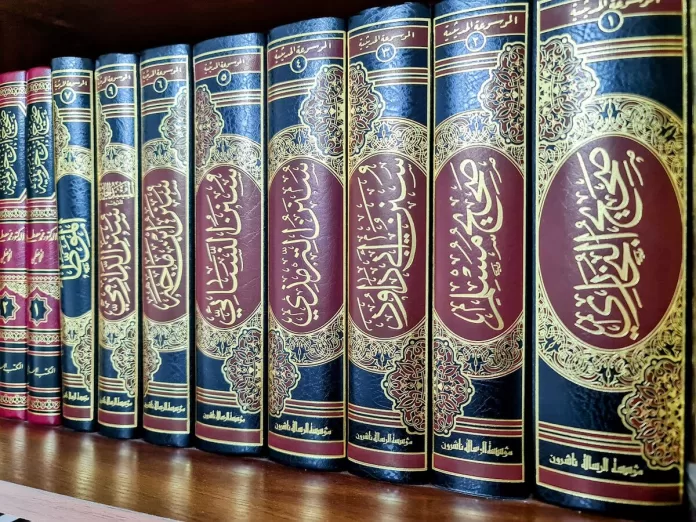The Quran is Divinely protected[1] and revealed as immutable guidance[2], contrasted with the Hadith, which, while intended to elucidate the Quran, are vulnerable to reinterpretation and misinterpretation, even fabrication. Despite Quranic safeguards against such manipulation[3] (3:7) in the Quranic text, the sheer volume of Hadith literature presents a significant risk. This vulnerability, exacerbated by the Prophet’s (ﷺ) prohibition[4] against codifying Hadith into rival texts, has been exploited both unwittingly by Muslim scholars and deliberately by Islam’s adversaries to diminish the Quran’s authority, relegating it to a mere object of reverence and recitation.[5]
The perilous consequences of relying on fabricated Hadith to justify extremism, abuse, and violence, though not a novel problem, have reached a critical and dangerous juncture in today’s volatile world. Consequences of relying on fraudulent and counterfeit Hadiths to legitimize extremist behavior, justify blatant abuse, and issue disturbing edicts (fatwas) calling for violent acts, is not only far too easy but in fact very dangerous.[6] In addition, given the widespread anti-Islamic sentiment currently dominating mainstream discourse, it is imperative that the issue of weak, fabricated Ahadith, extensively publicisedand ruthlessly exploited to support the thesis of Islamic violence and backwardness, is addressed. It is consequently the responsibility of Muslim scholars well versed in the Islamic sciences, to root out with honesty and courage those Hadiths which have clearly been fabricated, weak and which not only invite spurious interpretation but also perpetuate ignorance betraying both the Qur’an and the Prophet.
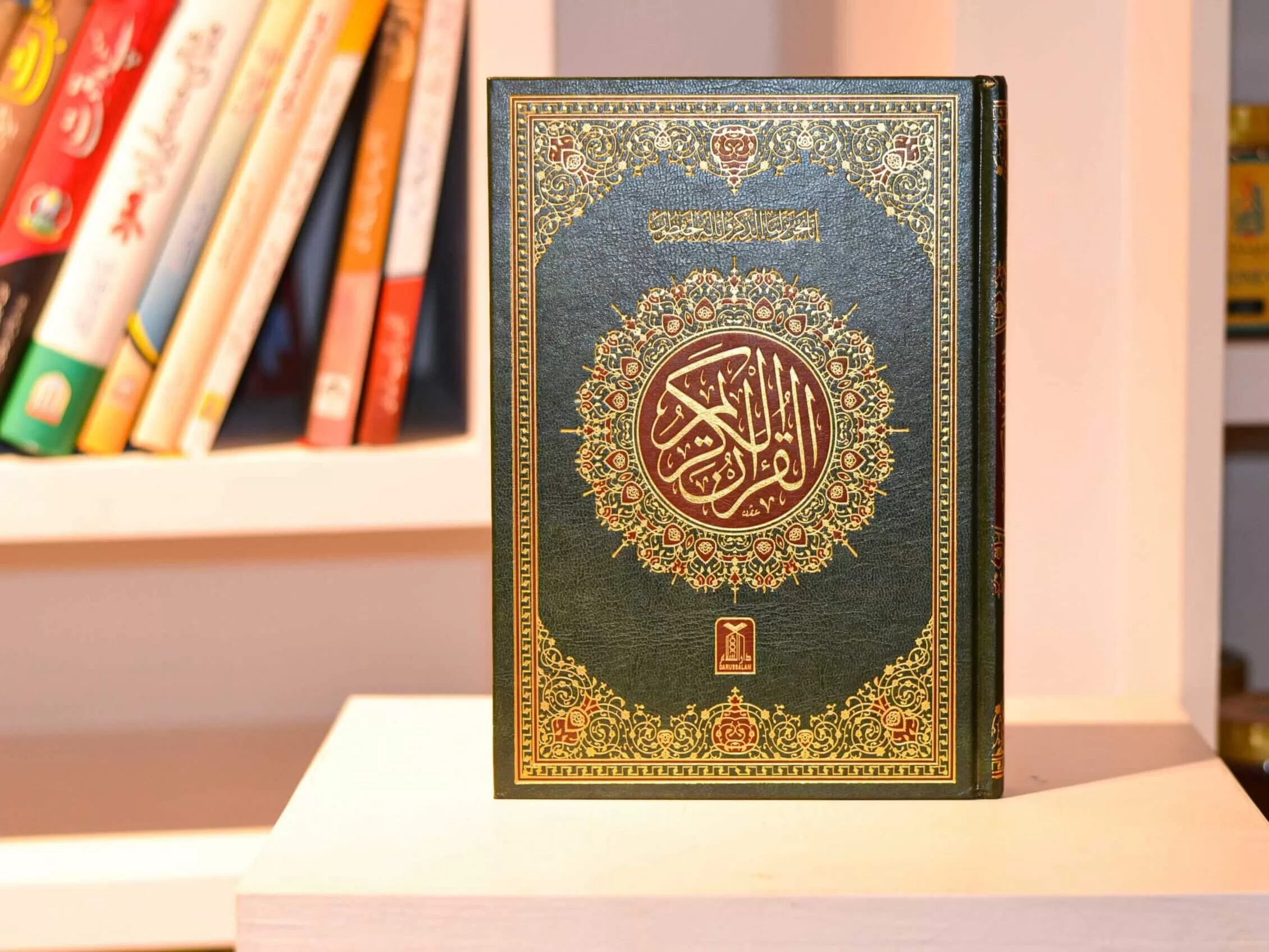
Any serious study of the content and scope of these traditions must necessarily start at the beginning, in this instance after the death of the Prophet Muhammad(ﷺ).[7] One has to trace in precise and careful detail the historical development of the oral and written traditions, as well as the many targeted attempts at fabrication that took place, critiquing in methodical detail certain Hadith which have come to be widely accepted as “authentic.” In any matter of dispute concerning the Hadith, the Qur’an must be the final arbiter. With advancements in technology and AI based analytical tools, this process has become more accessible than ever before.The critical evaluation of Hadith continues to be an ongoing and perpetual endeavor. Consequently, reliance solely on honourable authorities deemed reliable in earlier eras may no longer be sufficient in contemporary scholarship. The Quran being the book of Allah provides all guidance and Hadith is no exception. Surprisingly through thorough investigation, Hadith appear to assert their own standards.
This monumental undertaking, known to be practically insurmountable due to centuries of accumulated tradition and the near-sacred status of its compilers, was initiated despite the Prophet’s(ﷺ) (and the second caliph’s warnings, which have now tragically materialized with collections rivaling the Quran.
The Alchemy of Authenticity
History rarely sees big, important projects fail just because of a lack of resources, only to be left for future generations to finish. But sometimes, what seems impossible becomes possible through unexpected turns of fate. This is the story of the bold effort to recompile the “Hadith:—the sayings and actions of Prophet Muhammad(ﷺ)to separate truth from myth. For 1,400 years, the task of preserving the Prophet’s(ﷺ) teachings fell to scholars. They were humans, not angels. Over time, their work became so respected that people treated their books as sacred, almost equal to the Quran itself.
This worried early Muslim leaders. Caliph Umar (may Allah be pleased with him) and Prophet Muhammad(ﷺ) who had warned: “Don’t write down my sayings—they might distract people from the Quran.”[8] Their fear came true, just like the Jewish Talmud (38 volumes) and the Christian New Testament (23 books) which not only undermine divine books but caused many divisions. Islam’s 171 Hadith book collections besides undermining the Quran, now split Muslims into different groups. Questioning these books is seen as disrespectful, making any reform effort nearly impossible.
Many years of research finally produced a set of principles based on Quran and Sunnah (acts/ sayings of the Prophet(ﷺ) (to make purified collection of reliable Hadith). This work was shared online and sent to governments, seminaries, and religious leaders worldwide. But the progress stalled. Tradition was too strong. It was finally concluded that: “We have given our best; now we entrust the outcome to God”.

The Marvel
Then, something changed. Saudi Arabia, often seen as a conservative society, launched a massive project to verify Hadith. Crown Prince Mohammed bin Salman (MBS) explained why: extremists use fake or weak Hadith to justify violence and oppression. Most Hadith circulating today, he said, lack proof and are twisted by bad intentions.
In order to sorting out truth from myth and to protect the Prophet’s(ﷺ) legacy, Hadith must be sorted carefully in three broad categories: Mutawatir Hadiths, widely reported and undeniably true (about 100 exist), are trusted nearly as much as the Quran.
Ahad Hadiths, narrated by a single person or a few, must align with the Quran and Mutawatir Hadiths to be accepted. Khabar Hadiths, with missing or unknown narrators (thousands exist), are used only in emergencies if deemed beneficial to the public. It is a huge task, but despair is not an option. After doing their best, those involved trust God to guide the outcome. As the Quran says:
“Allah will perfect His light, even if the disbelievers dislike it” (61:8).[9]
The goal is simple: let the Prophet’s (ﷺ) true words shine, free from the shadows of lies. Every reader is expected to play his role by undertaking this task to provide assistance, feedback and early completion. The Qur’an is the final Book of Guidance forms an essential pillar of faith for Muslims. Allah declares in the Qur’an:
“Indeed, in Messenger(ﷺ) of Allah, you have an excellent example for anyone whose hope is in Allah and the Last Day and who remembers Allah often.” (Qur’an 33:21)
Following the Messenger as the exemplary model (Uswah Hasanah) of the Prophet Muhammad(صلى الله عليه وسلم (is observed in two fundamental ways:
1. The Sunnah (Prophetic Practice) – The actions of the Prophet(ﷺ), witnessed and followed by thousands of his companions, including acts such as prayer (Ṣalāh), fasting (Ṣawm), almsgiving (Zakāh), pilgrimage (Ḥajj), and marriage (Nikāḥ) etc.
2. The Prophet’s Sayings (Ahādīth/ Hadiths) – His spoken words, instructions, and commands which were heard and transmitted by varying numbers of companions, sometimes by only one or two only.
According to the Qur’an and the direct command of the Prophet(ﷺ)[10], strict prohibition was placed on compiling any “Book of Ḥadīth”, because previous communities (Jews and Chrsitians) got misguided by writing man-made book (Talmud 38 Volumes, New Testament 23 books) and neglected the books of Allah[11]. The same reason was repeated by Caliph Umer[12] once he decided not to make Hadith books and burnt the collection. This prohibition is already well-documented in Qur’anic[13] verses, the Prophet’s traditions, and historical records[14], despite persistent yet unsuccessful attempts to obscure or dispute this reality. The Prophet(ﷺ)himself outlined the method by which his sayings were to be transmitted, stating:
“May Allah illuminate the face of the one who hears my statement maqālati memorize (فَحَفِظَهَا) it, and then conveys it to others.” (Mishkāt al-Masābīh, Hadīth No. 228)[15]
The Companions (Ṣaḥābah) listened to the Ḥadīth, memorized them, and passed them down. While a few were granted permission[16] to take notes due to weak memory, prominent companions—such as Abū Hurayrah (RA)—and many others were strictly prohibited[17] from writing them down. Until their last breath, they upheld this prohibition with unwavering commitment.[18]
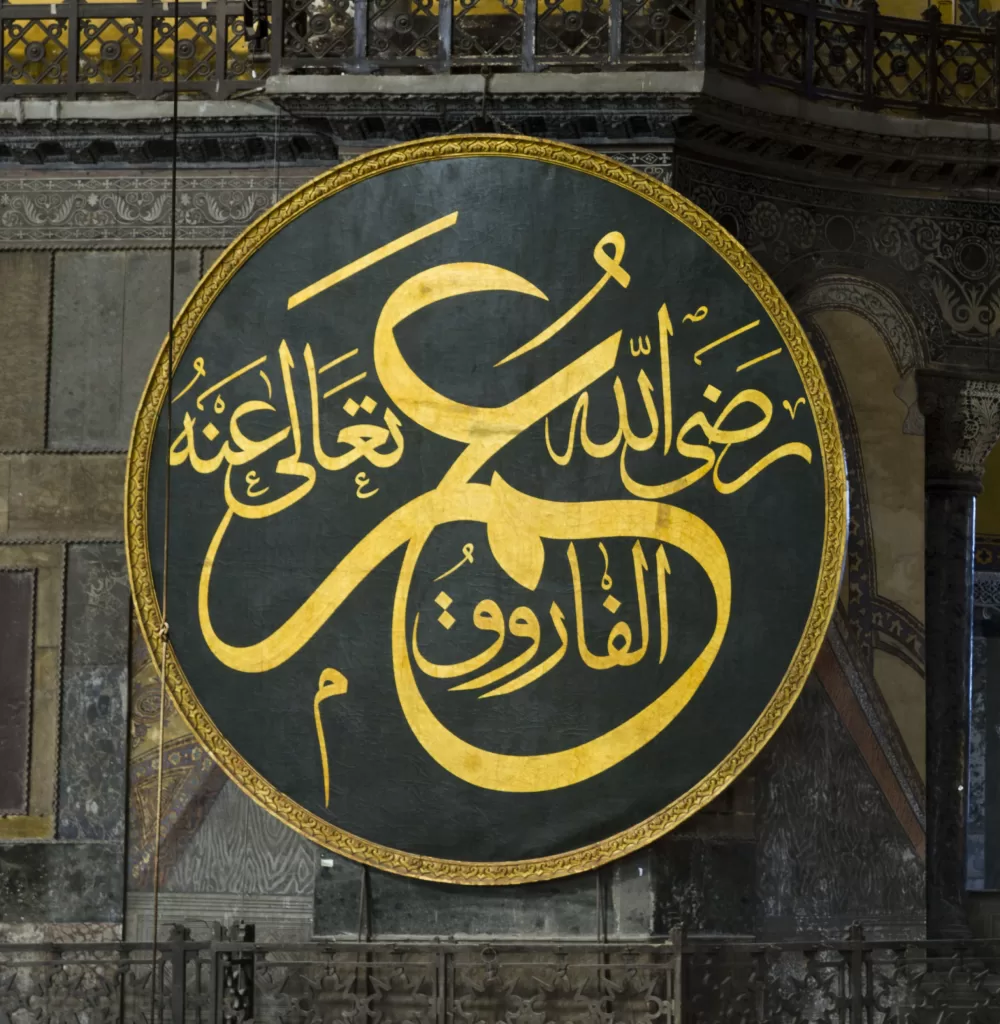
These orders/instructions were followed for about a century, once all narrators died and the market was full of Hadiths, Caliph Umer bin Abdu-Aziz and later some people undertook the task of writing Hadith books. Six are prominent and overall there are around 170 Hadith books available which has overshadowed the Quran, exactly as anticipated by the Prophet(صلى الله عليه وسلم (and Caliph Umer(RA)[19]. The floodgate once opened is difficult to control.
Sources of Islamic Knowledge
The sources of Islamic knowledge are limited to three: anything beyond them is extra. Abdullah bin Amr (رضی عنه هللا (reported that the Prophet(ﷺ)said: “Knowledge consists of three things:
1. A decisive verse[20] (آیت محکمہ)
2. Established Sunnah (سنت ثابتہ), and
3. A just obligation (فریضہ عادلہ — fair duties).”[21]
“[That is] so He may make what Satan throws in a trial for those within whose hearts is disease and those hard of heart. And indeed, the wrongdoers are in extreme dissension.(Quran; 22:5)
No other book can claim such an authority. Later Scholars added/ modified following in later centuries:
Traditionally there are ‘primary and secondary sources’ from which Islamic teachings and rulings are derived. Here are the ‘basic sources of knowledge in Islam’, along with references from the Quran and Sunnah ( Hadiths).
Divine Revelation (الوحي – Wahy)
The Quran – The ultimate and infallible word of Allah, revealed to Prophet Muhammad(ﷺ).” This is the Book about which there is no doubt, a guidance for those conscious of Allah.”(Quran 2:2). Quran 96:1-5 is the first revelation emphasizing knowledge. But they diluted the status by calling it as Recited Revelations (wahi matloo)[22] and upgraded Hadiths as wahy the Non-recited revelations (ghair matloo), terminologies unknown to the Prophet(ﷺ)and companions (discussed in detail at link.[23])
The Sunnah/Hadith – The sayings, actions, and approvals of the Prophet(ﷺ), which explain and complement the Quran. “And whatever the Messenger has given you—take; and what he has forbidden you—refrain from.” (Quran 59:7). The Prophet(ﷺ)said, “Whoever follows a path in pursuit of knowledge, Allah will make easy for him a path to Paradise.” [Al-Bukhari:1]. Most scholars consider Hadiths and Sunnah as the same which is not supported by Hadith mentioned subsequently.
Intellectual Reasoning 🙁العقل – Aql)
Islam encourages the use of reason and critical thinking within the boundaries of revelation[24]: “Indeed, in the creation of the heavens and the earth and the alternation of the night and the day are signs for those of understanding. (Quran 3:190-191)[25] Quran Encourages reflection on the universe 2:164: Also see, 8:88.
Empirical Observation & Experience (التجربة-Tajribah)
Islam supports learning through observation, experimentation, and experience. The Prophet(صلى الله عليه وسلم (said; “The cure for ignorance is asking questions.” (Hadith-Muslim). Moreover Quran 88:17-20: urges people to observe nature.[26]
Consensus of Scholars :(إجماع – Ijma)
The unanimous agreement of qualified Islamic scholars on a legal issue. As per Hadith (Tirmidhi) the Prophet(ﷺ) is reported to have said: My Ummah will not agree upon misguidance.” [There will always be people following the straight path, even few[27]] needs elaboration]. As per Analogical Reasoning (قياس – Qiyas) which are deriving rulings for new issues by comparing them to established rulings in the Quran and Sunnah. Quran 59:2: mentions reasoning by analogy.[28]
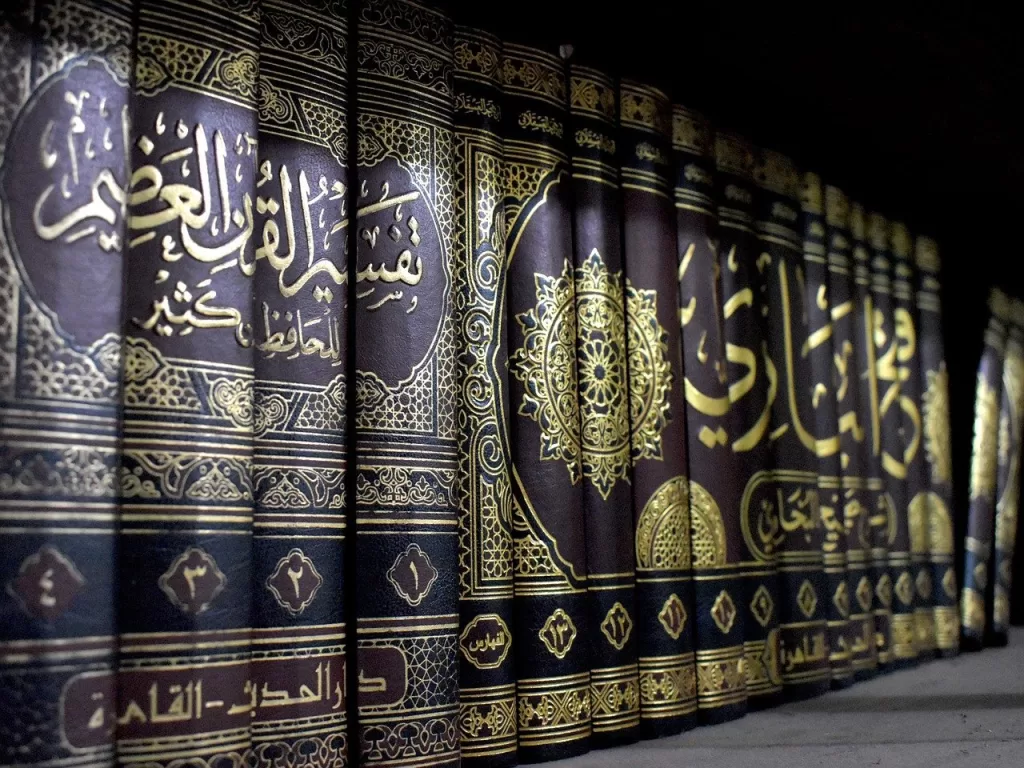
The additional secondary sources include Istihsan (Juristic Preference) – Choosing the best ruling for public welfare and Urf (Customary Practice) – Accepting good local customs that don’t contradict Shariah. In short the Quran and Sunnah are the primary sources, reason, observation, scholarly consensus, and analogy are secondary but essential tools for deriving Islamic knowledge. Should we confine strictly to the fundamental teachings in the light of ْ 3:7 [29] (آيَاتٌ مُّحْكَمَاتٌ هُنَّ أُمُّ الْكِتَابِ) & the Sunnah of the Prophet(ﷺ), keeping religion within its original boundaries, or introduce new sources and expand it in various directions?
This critical question demands thorough analytical examination by scholars and those in positions of religious authority. Because due to the non-standard set of Hadith literature (if scholars do not agree on one) there will be variants/ sects.
Imam Suyuti (1445–1505 CE) identified 113 Mutawatir Hadiths, each narrated by at least ten people in every generation, most of which relate to acts of worship. These are closest to the Sunnah and Quran. Similar Saudi project identified 100 Matwater Hadiths[30].
No one be allowed to use the name of holy Prophet(ﷺ) to advance his own ideas in to Islam through fabrication[31]. The remaining thousands of Ahad Hadiths must be assessed through the proposed principles of Hadith[32] criticism to determine their authenticity and reliability. Blind acceptance without investigation can lead to misguidance. All sectarian conflicts, divisions, and religious strife arise from abandoning the clear and decisive verses of the Quran (3:7 & , 25:30) and relying instead on ambiguous interpretations to construct beliefs and ideologies—a deviation (بدعة (that leads to falsehood.
Anyone can verify this by simply demanding proof. There is no need for geneious. When a Quranic verse is clear and decisive, it requires no further interpretation; common sense—though ironically uncommon—suffice.

Hadith Knowledge
While Hadith serves as a valuable supplement to Islamic teachings, it is important to remember that it was never classified among Islam’s primary sources by the Prophet(ﷺ) himself (Sunnah was). Yet, over time, we’ve seen a shift where Hadith sometimes takes precedence over the Quran—often justified as necessary for its explanation. But if Hadith were meant to hold such foundational status, why they were not included among core sources? Introducing it as such now risks venturing into bid‘ah[33] (Deviation), which the Prophet(ﷺ) cautioned against as misguidance (ḍalālah)[34].
To maintain clarity and prevent confusion, it’s crucial to evaluate Hadith strictly within the Quran’s framework and the established Sunnah. Some scholars have even elevated Hadith to the status of “un-recited revelation” (wahi ghair matlu), a concept unfamiliar to the Prophet(ﷺ) and his companions. This raises concerns, as justifying one unintended change often leads to others. A thoughtful, balanced approach— guided by the Quran and authenticated Sunnah—can help preserve the faith’s purity while avoiding unnecessary divisions.
Apart from Mutawatir Hadith, most of the Hadith corpus consists of Ahad or Khabir Hadith, whose authenticity is not certain but speculative (ẓannī)—[ẓann meaning assumption, doubt, conjecture, or estimation]. The bulk of the collection is “Khabir”, which are in thousands, the narrators are doubtful or at times missing. However, if these Ahad Hadith meet the standards set by the Prophet(صلى الله عليه وسلم(, their reliability can be strengthened through rigorous verification, rather than being accepted or rejected based on convenience or sectarian bias or chain of narrators. Unfortunately, sectarian scholars often dismiss Hadith presented by their opponents as “weak” (zaeef) to counter their arguments.
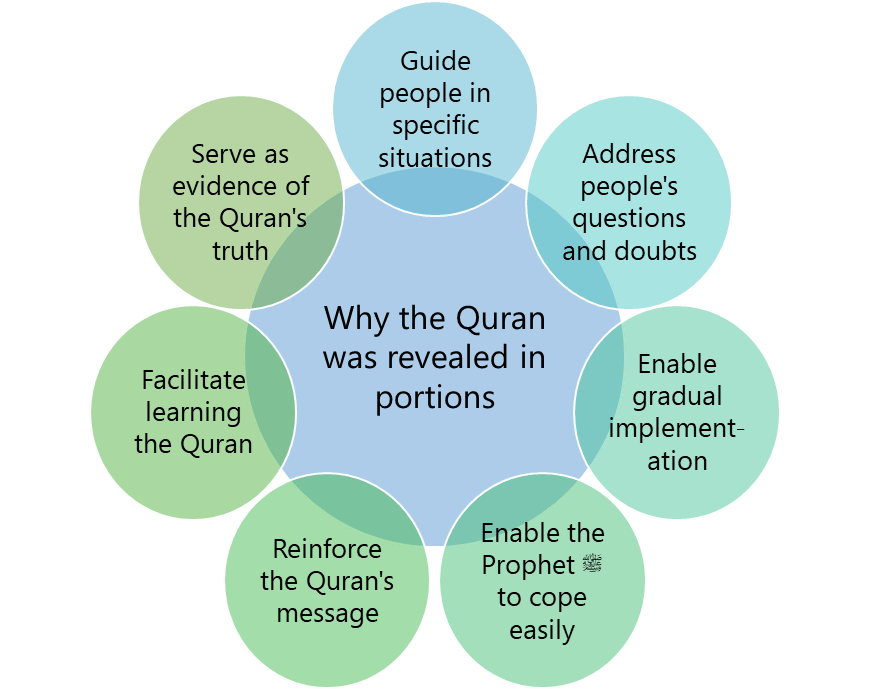
Hadith and Sunnah- Differences
While the Rightly Guided Caliphs were compiling the Quran, the transmission of Hadith remained limited to memorization, narration, and hearing (oral transmission) for a long time, and this practice, to some extent, continues even today despite the writing of Hadith books in the second and third centuries Hijra. [35] There is likelihood of Hadith listening and understanding by the narrators, which may create misunderstanding by any one transmitter. The Quran and the Sunnah of the Messenger of Allah (صلى الله عليه وسلم (are completely preserved due to their continuous (matwater) generation-to-generation transmission[36] there is no likelihood of misunderstanding through an unbroken chain. This is a main distinction between Sunnah and Hadith. Following Hadith clarify Sunnah and Hadith to be different:
عَنْ أَبِي هُرَيْرَةَ، عَنِ النَّبِيِّ صَلَّى اللَّهُ عَلَيْهِ وَسَلَّمَ، قَالَ :” سَيَأْتِيكُمْ عَنِّي أَحَادِيثُ مُخْتَلِفَةٌ، فَمَا جَاءَكُمْ مُوَافِقًا لِكِتَابِ اللَّهِ وَلِسُنَّتِي فَهُوَ مِنِّي، وَمَا جَاءَكُمْ مُخَالِفًا لِكِتَابِ اللَّهِ وَلِسُنَّتِي فَلَيْسَ مِنِّي ”
صحيح، رواه الشافعي – في الرسالة ص 401 فقرة: 1102 وھو في مختصر المزني ص 423
والبيهقي في المدخل (لم أجده في المطبوع، وھو في شعب الإيمان: 1738) [و الترمذي (2658) و أحمد (1/ 436)]
و للحديث شواھد کثيرة وھو بھا صحيح، انظر الأحاديث الآتية (229. 231)[37]
Translation:
It is narrated by Abu Huraira (may Allah be pleased with him) that the Prophet (peace be upon him) said: ‘Some controversial Hadith will come from me. Those that agree with the ‘Book of Allah’ and ِ (كِتَابِ اللَّهِ وَلِسُنَّتِي) (my Sunnah’ will be from me. And those that contradict the ‘Book of Allah’ and ‘my Sunnah’ will not be from me.’[38],[39]
Secondly, the sayings, pronouncements, and commands of Prophet(ﷺ) (Hadith), which were heard by varying numbers of companions, sometimes more and sometimes less, or by one or two companions, their authenticity remains questionable. According to the Quran and the intentions of the Messenger of Allah(ﷺ), making Hadith book’ is strictly prohibited, he always said that; There is only one book, the book of Allah (Quran). (All failed attempts to conceal or make this fact controversial are proven by the Quran[40], Sunnah, Hadith, and history.)[41],[42]
Is Hadith a Form of Divine Revelation? The reliance on an oral tradition alongside a written scripture, as seen in this context, echoes the Jewish model of the Written Torah and the Oral Torah, with the Talmud serving as a repository of scholarly interpretation. This structure inherently grants religious scholars considerable power in shaping religious understanding.[43]
The elevation of Hadith through the concept of ‘non-recited revelation’ (wahi ghair matoo)[44] (compare with Oral Torah) , a term very important absent from the Prophet’s(ﷺ) and his companions’ discourse, who actively suppressed Hadith writing, creates a significant contradiction. The Quran verse used to justify this terminology cannot be termed as “Command verse”[45] Once we look at the context and other Hadiths with ground realities, they don’t support it. For full detail and analysis visit:[46]
He it is Who has revealed the Book to you; some of its verses are decisive, ve, (يَاتٌ مُّحْكَمَاتٌ هُنَّ أُمُّ الْكِتَابِ) (they are the basis of the Book, and others are allegorical (مُتَشَابِهَاتٌ) then as for those in whose hearts there is perversity they follow the part of it which is allegorical, seeking to mislead and seeking to give it (their own) interpretation. but none knows its interpretation except Allah, and those who are firmly rooted in knowledge say: We believe in it, it is all from our Lord; and none do mind except those having understanding. (Quran;3:7)
The Prophet’s(ﷺ) (role was to explain the Quran, not to introduce new revelations. The ‘knowledge[47] granted by Allah would have been the appropriate means to explain the Quran.[48] Therefore, assumptions and conjecture, whether deliberate or inadvertent, are unacceptable in theological discussions of this nature. There is only one Wahi/Revelation given to the Prophet(صلى الله عليه وسلم(, The Quran, this is evident from massive Hadith literature. [See Principle #2: Misguidance Without the Quran]
To justify one Biddah(بدعة), they had to invent many more Bid’ah ignoring the Quran;3:7. What is more, to Revelations (wahi) by declaring Hadith (burnt at least at two occasions) to be “Non Recited Revelation[49]” (wahi ghair matoo) and the Quran as ‘Recited Revelation’. These terminologies are non Quranic and nothing but Biddah[50](بدعة) which were widely accepted and 3/5th century Hijrah probably under Jewish influence. Earlier scholars like Abu Hanifa did not use these terms. The Prophet(ﷺ) (was given ‘Knowledge’(Bukhari: 7006, 4725, Muslim:6190) which might have been used in explaining the Quran and other things. (Allah knows best)[51]
This is how the Quran is undermined and the Messenger(ﷺ) (will say on the Day of Judgement: “These people did not regard the Qur’an as worthy of their consideration: they neither accepted it nor followed it”; [or “They considered it to be a nonsense or the delirium of insanity”: or “They made it the target of their ridicule and mockery”.][52]
There is great wisdom hidden in the policy of preserving and transmitting Hadith orally. This system naturally eliminates unnecessary and fabricated Hadith, as there is no benefit in memorizing them. It is a self-regulating mechanism that needs to be understood. Furthermore, the proposed principles for evaluating Hadith can also help distinguish truth from falsehood by assessing them against established criteria—something that is greatly needed today.
Text/Matin
It is imperative before sharing Hadith (especially on social media) or acting upon them, to ensure that they align with the fundamental principles and standards established by the Prophet(ﷺ), including the authenticity of their content (matn). Unfortunately, for centuries, this essential scrutiny has been neglected, which has been one of the primary causes of discord, sectarianism, hypocrisy, intellectual stagnation, spiritual decline, and worldly downfall within the Muslim ummah.
This may be one of rare attempts to remove the Hadith corpus from the exclusive authority of any individual or group and bring it under the framework of Allah’s commands and the teachings of the Prophet(ﷺ). This approach ensures that Hadith can be utilized in a beneficial and meaningful way, their number may decline but we have to sure that it is said by the Prophet(ﷺ) and not concocted on his name by some scrupulous elements.[53]
Any thing of Islam that is upheld outside the clear directives of Allah and His Messenger(ﷺ) will ultimately prove more harmful than beneficial to Muslims. If we engage our intellect and reflect deeply, we can understand this reality.
For instance, intoxicants may have some perceived benefits, but their harms far outweigh them. Yet, to an addict, only the benefits seem apparent—until the devastating consequences emerge, often when it is too late to reverse the damage. We would not like to be among those about whom Prophet(ﷺ) will say:
“..My Lord, This Qur’an was abandoned by my people.”(25:30)[54]
But whoever disobey God and His Messenger and transgresses His bounds, He will admit him into the fire, and there they will stay where shameful suffering awaits them.(4:14)[55]
Centuries Old Myths Busted
1. Mixing with Quran
A common narrative asserts that the Prophet(صلى الله عليه وسلم (prohibited the writing of Hadith to prevent its confusion with the Quran during revelation. However, this claim lacks credible support. Rigorous investigation reveals no authentic source where the Prophet(ﷺ) explicitly articulated this reasoning.
The historical record indicates that Abu Hurairah (RA), who joined the Muslim community around 7 Hijra[56] (Khyber expedition), he and Abu Sa’id alKhudri (and others) were indeed forbidden by the Prophet(ﷺ) from writing Hadith, with the sole exception of the Quran and he burnt[57] them never to write again till his death (over 5374 Hadiths are attributed to him, all oral).
The rationale provided was not potential confusion, but rather the Prophet’s(ﷺ) concern about replicating the deviations of previous communities. [Jewish Talmud- 38 volumes and the Christian New Testament 23 books over and above 4 Gospels] as examples of supplementary religious texts that had led to the distortion of divine revelations.[58] This concern was echoed by the second Caliph Umar (RA)[59] when he similarly opposed the compilation of Hadith books. This prohibition notwithstanding, Muslims eventually compiled approximately 171 Hadith collections, a practice that continues to this day.[60]
Furthermore, the context of Abu Hurairah’s (رض) conversion renders the “confusion” argument untenable. By 7 Hijra, the Quran had been revealed for over 17 years while the Prophet(ﷺ) died in 10 Hijra. Its distinct linguistic style was readily discernible to the Arabs, renowned for their linguistic proficiency. This prolonged period of exposure to the Quran’s unique eloquence effectively negates the claim that Hadith could be mistaken for divine revelation.
Hence the assertion that Hadith was not written down to avoid confusion with the Quran is a myth unsupported by historical evidence. The Prophet’s(ﷺ) prohibition stemmed from a concern about replicating the textual distortions seen in earlier religious communities, a concern validated by the subsequent proliferation of Hadith collections. No such confusion exists about the Quran.
2. Non-Recited Revelation” (Wahi Ghair Matlu)
The second misconception revolves around the classification of Wahi—specifically, the claim of “Non-Recited Revelation” (Wahi Ghair Matlu)—which has been addressed in detail earlier/ separately.[61]
Modern Muslim Perspectives on Hadith
Presently the Muslims engage with Hadiths literature in five distinct ways:
1) unquestioning acceptance
2) complete rejection,
3) selective adherence, or
4) balanced, critical evaluation
5) non committal/unconcerned.
The most Quranically sound approach is a balanced scrutiny that prioritizes authentic and reliable Hadith. Total rejection of Hadith literature contradicts the Quran’s directive to obey both Allah and His Messenger (ﷺ) (62), reducing Islam to a mere philosophy. Conversely, blind acceptance and selective adherence—often influenced by ignorance or personal interests—perpetuate fabrications and obstruct progress. The Quran warns against such selective obedience, as seen in its critique of earlier scriptures and hypocrites. A true understanding of Hadith requires a rigorous, evidence-based approach, embracing only those that meet the highest standards of authenticity.
The most practical approach is to seek guidance from the Quran and Sunnah. Hadiths that align with these sources, as well as with reason and contemporary relevance, can be accepted. This method is firmly rooted in scripture, ensuring broad agreement. Any alternative approach is likely to face resistance. This paper explores the available options based on this principle.
When the Prophet(ﷺ) prohibited the writing[63] of Hadith and opted for oral transmission, he was fully aware that much of it might be lost over time and that fabrications would emerge. However, he provided such precise guidelines that, if strictly followed, would have prevented any distortion. In contrast, the Quran[64] was meticulously recorded and preserved with unparalleled accuracy—something not done for Hadith—clearly indicating the priorities set by the Prophet(ﷺ)and the Rightly Guided Caliphs. Presently most things are clear as they pass from generation to generation, with minor differences, which even if not reconciled can be ignored. It does not make much difference. Anyone who believes they are more concerned about preserving Hadith than the Prophet(ﷺ) or his closest successors should seriously reconsider their perspective—or perhaps seek professional counsel.
The Principles
A deep study of the Quran, the Sunnah of the Prophet(ﷺ), and Hadiths reveals essential principles that serve as a reliable framework for evaluating the authenticity and accuracy of existing Hadiths. These principles provide a clear method for accepting or rejecting Hadith, based on objective criteria. The following “proposed principles” represent a fundamental enhancement to the traditional methodologies and can be further refined through continued research. They are termed “Golden Principles” because they are firmly rooted in the Quran, Sunnah, and Hadith. Moreover, the referenced Quranic verses and Hadith mutually reinforce each other, making it essential to accept them collectively as an integrated package rather than in isolation. To avoid excessive length, only a few representative Quranic verses and Hadith are provided here.
These principles are rooted in the Quran and Sunnah; anything beyond them is deemed invalid. A deep study of the Quran, the Sunnah of the Prophet(ﷺ), and Hadith reveals essential principles that serve as a foundation for evaluating the authenticity of existing Hadith. These principles help determine which Hadith should be accepted or rejected based on their reliability.

The following principles represent a fundamental enhancement to the existing methodologies, with room for further refinement through continued research. They are termed “Golden Principles” because they are rooted in the Quran, Sunnah, and Hadith.[65] The references from Quranic verses and Hadith mutually reinforce each other, making it essential to consider them collectively as an integrated package. More Hadiths have been referred to satisfy Hadith enthusiasts, who prefer Hadith over Quran unfortunately.
1. Principle #1: Qur’an may supersede Ḥadīth; but Ḥadīth can not.
2. Principle #2: Ḥadīth must be in accordance with the Qur’an and Sunnah.
3. Principle #3: Ḥadīth must be compatible with reason and understanding.
4. Principle #4: Ḥadīth Qudsī vs. Ḥadīth Nabawī.
5. Principle #5: The Chain of Narration (Isnād) and Hadith text.
6. Principle #6: Prohibition of Compiling a “Book of Ḥadīth”.
7. Principle #7: Memorization and Transmission of Ḥadīth.
Details / explanation of these principles later next month[66] …..
[1] http://www.equranlibrary.com/tafseer/aasantarjumaquran/15/9
[2] https://quran1book.wordpress.com/19qa/
[3] http://www.equranlibrary.com/tafseer/tafheemulquranen/3/7
[4] https://wp.me/scyQCZ-forbid
[5] https://quran1book.blogspot.com/2021/09/ Quran-Neglected.html
[6] https://bit.ly/Hadith-Basics (Urdu)
[7] Israr Ahmed Khan\ The International Institute of Islamic Thought.
[8] (صحیح مسلم، ، حدیث نمبر: 7510)
[9] http://www.equranlibrary.com/tafseer/tafheemulquranen/61/8
[10] https://wp.me/scyQCZ-quran
[1 1] https://wp.me/pcyQCZ-34
[12] https://wp.me/pcyQCZ-4a
[13] https://quran1book.wordpress.com/2020/11/19/quran/
[14] https://wp.me/scyQCZ-forbid
[15] https://www.islamicurdubooks.com/hadith/hadith۔php?tarqeem=1&bookid=23&hadith_number=228
[16] https://wp.me/scyQCZ-ban04
[17] https://wp.me/scyQCZ-ban05
[18] https://quran1book.blogspot.com/2020/06/hadith.html
[19] https://islamawakened.com/quran/25/30/default.htm
[20] https://quran1book.wordpress.com/19qa/
ٰمشکوۃ المصابیح، حدیث نمبر: ،239 رواہ ٔ ابوداود (2558) و ابن ماجہ(54)) [21]
الذھبی فی تلخیص المستدرک (/۴ ۳۳۲)۔
[22] https://wp.me/scyQCZ-wahi2
[23] https://wp.me/pcyQCZ-g0
[24] https://salaamone.com/intellect/
[25] https://tanzil.net/#trans/en.shakir/3:190
[26] https://tanzil.net/#trans/ur.maududi/88:17
[27] https://www.iium.edu.my/deed/hadith/muslim/001a_smt.html
[28] https://tanzil.net/#8:22
[29] https://quransubjects-blogspot-com.translate. goog/2021/03/quran-key.html
[30] https://saudigazette.com.sa/article/617731
[31] https://quran1book.blogspot.com/2020/10/HadithUse-Abuse.html
[32] https://bit.ly/Hadith-Basics
[33] https://quran1book.wordpress.com/2021/07/19/ bidah/
[34] https://salaamone.com/sunnah-hadith/
[35] https://wp.me/scyQCZ-compr
[36] https://wp.me/pcyQCZ-46
[37] https://al-hadees.com/sunan-al-daraqutni/4473 \
الحج آیات ١ نوٹ ١ تفہیم القرآن کے مطابق حدیث کی قرآن سے مطابقت اس [38]
-کے درجہ کو بڑھا دیتی ہے اور قرآن سے دوری درجہ کو کم کر دیتی ہے
[39] https://salaamone.com/hadees-sunnat-tehqeeq/
[40] https://quran1book.wordpress.com/2020/11/19/ quran-on-hadith/
[41] https://wp.me/scyQCZ-ban01
[42] https://bit.ly/Hadiths-Eng
[43] Oral Torah: https://www.britannica.com/topic/
[44] https://wp.me/scyQCZ-wahi2
[45] https://tanzil.net/#trans/en.shakir/53:3
[46] https://wp.me/scyQCZ-wahi2
[47] https://islamicurdubooks.com/hadith/hadith-. php?bookid=1&hadith_number=82
[48]”The Messenger of Allah(ﷺ) said: ‘Do not attribute falsehood to me, for whoever attributes falsehood to me will enter Hellfire.’ (Sahih Muslim, Hadith: 2)”
[49] https://wp.me/scyQCZ-wahi2
[50] (Quran;6:114-115, 16:89, 39:23)
[51] Narrated Ibn `Umar: I heard Allah’s Apostle saying, “While I was sleeping, I was given a bowl full of milk (in a dream), and I drank of it to my fill until I noticed its wetness coming out of my nails, and then I gave the rest of it to `Umar.” They (the people) asked, “What have you interpreted (about the dream)? O Allah’s Apostle?” He said, “(It is Religious) knowledge.” [Bukhari,7006# Muslim 6190]
[52] https://quran1book.blogspot. com/2021/09/Quran-Neglected.html
[53] https://bit.ly/Hadiths-Eng \ AAK-Hadith Notes Urdu: https://bit.ly/ Hadiths
[54] https://islamawakened.com/ quran/25/30/default.htm
[55] https://islamawakened.com/ quran/4/14/default.htm
[56] https://en.wikipedia.org/wiki/Abu_Hurayra
[57] Abu Huraira (r.a) bun Hadith: https://wp.me/ scyQCZ-ban01
[58] https://wp.me/scyQCZ-forbid
[59] https://wp.me/scyQCZ-omar3
[60] https://en.wikipedia.org/wiki/List_of_hadith_books
[61] https://wp.me/scyQCZ-wahi2
[62] 4:59 | http://www.equranlibrary.com/tafseer/ tafheemulquranen/4/59
[63] Why Prophet(صلى الله عليه وسلم (banned writing Hadith Books? https://wp.me/pcyQCZ-7J
[64] Quran: Compilation: https://wp.me/pcyQCZ-l2 \ https://wp.me/scyQCZ-compr
[65] Surah Al-Hajj, note 1 to verse 1 by Modudi Tafheemul-Quran, if Hadith is closer to Quran it upgrades its status over those away to Quran.
[66] https://wp.me/scyQCZ-revision \ https://Quran1book.wordpress.com/2022/12/13/revision/


